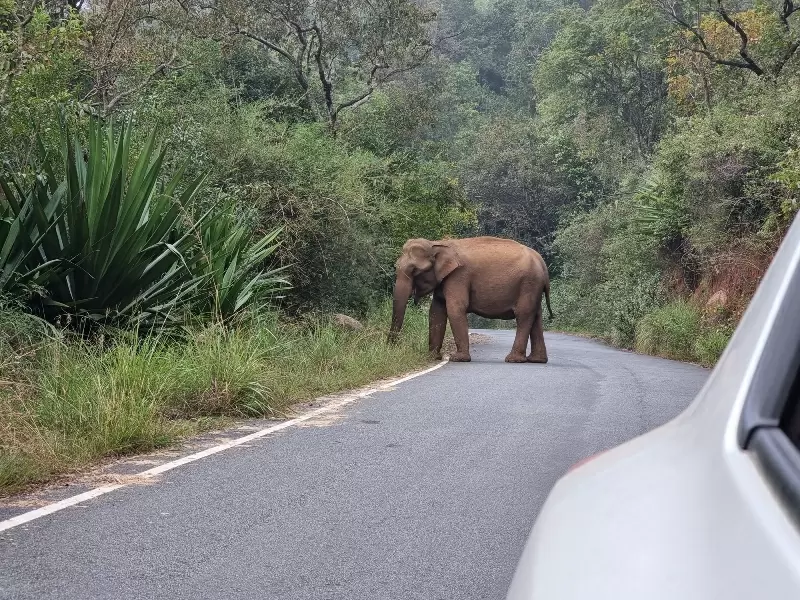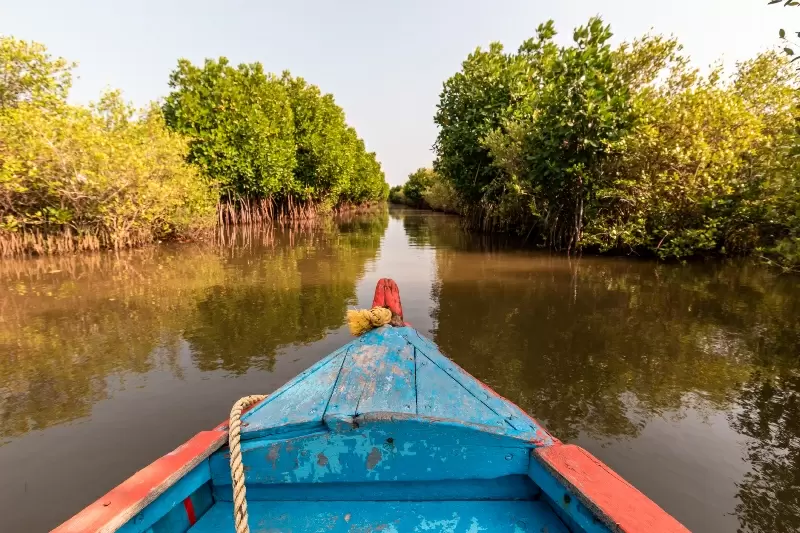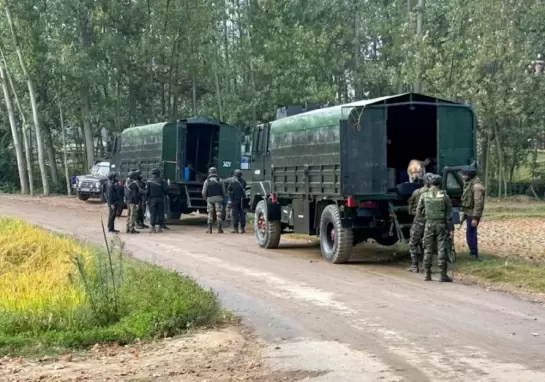Supriya Sahu IAS: A Green Crusader Who is Transforming Tamil Nadu's Environmental Landscape
25-June-2025
Vol 16 | Issue 26
In a world increasingly threatened by climate change and environmental degradation, some bureaucrats rise above routine governance to leave a lasting legacy.
One such officer is Supriya Sahu, from the 1991 batch of the Indian Administrative Service (Tamil Nadu cadre), who is now known for her strong work in protecting the environment and promoting sustainable practices in India.

| As Tamil Nadu’s top environment official, Supriya Sahu is redefining sustainable governance with bold, on-ground initiatives (Photo Courtesy: Supriya Sahu/ Instagram) |
Supriya is now working as the Additional Chief Secretary of the Environment, Climate Change, and Forests Department in Tamil Nadu. In recent years, she has spearheaded some of the most impactful and innovative environmental initiatives in the state.
Originally from Uttar Pradesh, she completed her postgraduation in History from the University of Lucknow. Over her 30-year-long career in the IAS, she has held many key roles, including Director-General of Doordarshan, where she introduced several changes to improve public broadcasting.
But it was during her tenure as Collector of the eco-sensitive Nilgiris district in the early 2000s that she began taking action against the indiscriminate disposal of plastic waste that was harming the environment.
When she saw wild elephants eating plastic waste near Mudumalai, she swung into action and clamped a ban on plastic bags in the district—one of the earliest such bans in the country.
In due course, she started a campaign called “Operation Blue Mountain,” involving the local people and helping to create awareness about protecting nature.

| Sahu’s journey began when she saw wild elephants eating plastic waste near Mudumalai (Photo: iStock.com/ Favas Kalathil) |
On June 24, 2003, she spearheaded a Guinness World Record-breaking event, during which over 42,000 shola tree saplings were planted in a single day. This one activity went a long way in bringing back the forests in the mountain district that are very important for storing and supplying water in the region.
In recent years, Sahu has initiated several important projects to protect the environment in her capacity as the Additional Chief Secretary to the Government, Department of Environment, Climate Change and Forests, Tamil Nadu, a position she has been holding since 2021.
One of her key efforts was setting up a company called the Tamil Nadu Green Climate Company. This special company was formed to carry out four major missions of the Tamil Nadu government: the Climate Change Mission, the Green Tamil Nadu Mission, the Coastal Restoration Mission, and the Wetlands Mission.
Through this company, different government departments and local bodies could work together in a better and more organised way.
During this period, the state also launched a programme called the Chief Minister’s Green Fellowship. As part of this programme, 40 young professionals were selected from each district in Tamil Nadu.
These fellows helped the government by monitoring and supporting different environment-related projects. They worked on many things like planting trees and managing waste in villages and towns.
Another unique idea that she kickstarted was the climate-smart villages. In these villages, people used solar energy, saved rainwater, and followed eco-friendly farming methods. These steps helped the villages become stronger against the effects of climate change. This model was appreciated by many and is now being looked at by other states too.

| Sahu led from the front in the planting of over 1.6 lakh mangrove saplings in Ennore (Photo: iStock.com/ Balaji Srinivasam) |
In 2022, Supriya Sahu also brought back the use of the traditional yellow cloth bag known as manjappai through a campaign called Meendum Manjappai (Yellow Bags Once More).
This was done to fight plastic pollution, which was becoming a serious problem in Tamil Nadu. She encouraged women’s self-help groups (SHGs) to make and distribute these cloth bags. While attempting to reduce plastic use, the initiative also gave employment to many women.
The campaign also included installing vending machines for cloth bags in public places and going door-to-door to spread awareness. By 2024, this had become a big movement across the state and played an important role in reducing the use of single-use plastics.
During these years, Supriya also led the efforts that resulted in the state adding four more wetlands to the Ramsar list, an international recognition given to wetlands that are important for the environment. Her department also repaired damaged wetlands and lakes, which helped improve water storage underground and increased local biodiversity.
She also started India’s first government-supported project to protect the Nilgiri Tahr, a rare wild mountain goat found only in the Western Ghats. Along with this, she helped strengthen the Wildlife Crime Control Bureau to stop illegal hunting and trading of wild animals.
In 2024, the Tamil Nadu Forest Department and the Tamil Nadu Wilderness Experiences Corporation, introduced 40 trekking trails across 14 districts and 18 forest divisions, with the aim of promoting nature conservation, sustainable livelihoods for forest communities, and low-impact tourism
In April Sahu posted on her Instagram: “This initiative has already made waves. During the first phase (Nov 2024-Feb 2025), Trek Tamil Nadu generated a revenue of Rs. 63.43 lakh, out of which Rs. 56.71 lakh has been earned by local community trek guides. A total of 4,792 trekkers explored 40 curated routes across breathtaking forest landscapes.”
And now, in a determined effort to restore the fragile ecosystem of the Ennore estuary near Chennai, the Tamil Nadu Forest Department has dug a dozen freshwater ponds across 230 hectares to support the regeneration of mangroves, amid persistent pollution from industrial effluents and thermal power discharges.
The Ennore estuary and the adjoining Kosasthalaiyar River have long suffered from chemical contamination and thermal pollution, particularly due to the discharge of hot coolant water from the TANGEDCO thermal power plant. Recognising the environmental degradation, the Forest Department has initiated a mangrove restoration programme using a water-retention strategy to overcome the challenges of a toxic estuarine environment.
According to Sahu, each of the 12 ponds is four metres deep and has been constructed on dry land across several locations where tidal inflow alone cannot sustain mangrove roots. “These ponds hold fresh water and are designed to receive tidal inflow as well. In many of the dry island areas near Ennore, the roots of mangroves were unable to access water. This intervention is meant to address that issue,” she explained.
The department has planted around 1.6 lakh mangrove seedlings and another two lakh mangrove associate species such as Avicennia marina, Rhizophora mucronata, and Excoecaria agallocha. The ponds are expected not only to help root establishment but also to improve fish breeding and support aquatic biodiversity.

| Sahu reintroduced the traditional yellow cloth bag through the Meendum Manjappai campaign, turning it into a statewide movement against plastic use |
The restoration drive spans nine villages, including Puzhuthivakkam, Katupalli, and Edayanchavadi, where different planting methods -- such as the fishbone and linear techniques -- were adopted based on detailed soil and water analysis.
Sahu added that around 32,000 mangrove seedlings and 40,000 mangrove associate plants are being raised to replace those lost during last year’s southwest monsoon.
In a country where environmental work is often given less importance compared to industrial growth, Sahu is showing that it is possible to grow while also protecting nature. Under her leadership, Tamil Nadu is not just reacting to climate problems—it is preparing ahead of time. – TWL Bureau with inputs from IANS















